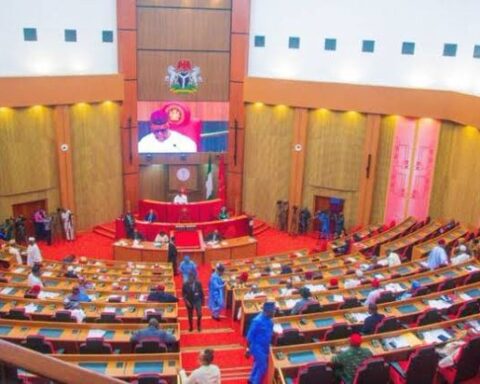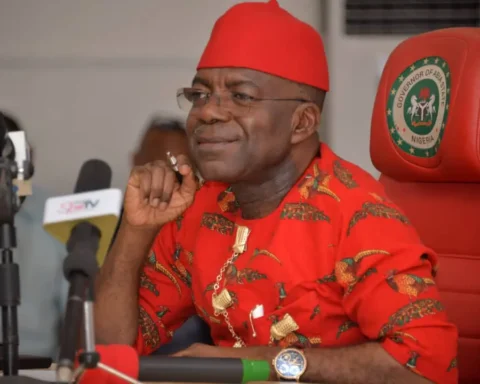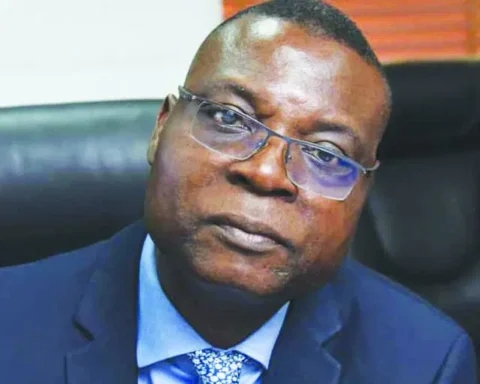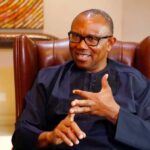Is there a time frame for the on-going reforms? This question is warranted in view of the reforms the government says it is implementing that don’t seem to have a time frame.
As a matter of fact, since 1999 when this political dispensation birthed
under former President Olusegun Obasanjo, the administration spent
eight years implementing reforms in virtually all sectors of the economy without any perceivable tangible benefits.
All through the entire duration of that administration, the refrain in government circles was reform, reform and nothing but reform.
Dr. Goodluck Jonathan took power after the demise of President Yar’Adua and continued with reforms that evaporated no sooner than he left office.
Then came Muhammadu Buhari and his sweeping reforms, Like the
Obasanjo administration before it, for another eight years, the country was treated with reforms that yielded no benefits. The scene was like circus being played while people watched in disbelieve.
Buhari left the country in worse state than he met it irrespective of the
reforms. That ushered the incumbent President Bola Ahmed Tinubu, who has rekindled reforms again. Since he assumed office in 2023, the refrain in government is reform and reform even when it is glaring that Nigerians are suffocating under severe economic hardship. It seems that every administration hides under the toga of reforms to spend time and exit office.
The Chambers English Dictionary defines reform variously as follows: to transform; to redress; to remove defects from; to bring to a better way of life. Each of these phrases connotes a deliberate attempt to change or alter an existing situation, for a better one. Thus, reform is a process of intervention designed to bring about change. Development on the other hand is the process of bringing a situation to a more advanced or more highly organized state.
Reform can enhance development if it is properly articulated and
implemented. Reform is not implemented in a vacuum. There should be a reform plan, which contains details of what is to be implemented according to specified time frame. This is to give room for appraisal, assessment and redirection where necessary. There must be clearly stated goals and objectives of a reform. The reform program should outline the sequence of action-the step by step process of implementation.
A reform must have a beginning and an end. In the course of
implementation, a reform should be monitored to determine whether or not the stated goals and objectives are being met. If the implementation is going in the right direction, the process continues. But if it is derailing or its impacts are not as expected, then there is need for a review.
It would be suicidal to ignore monitoring, assessment and review in the course of implementation, as that would spell doom for the sector concerned.
The mechanisms for assessment and review will form part of the reform plan.
The foregoing analysis and understanding are warranted against the
backdrop of the ongoing reforms the federal government.
Since the Tinubu administration came on stream in 2023, reforms have been the main thrust of government policy action in every sector of the economy.
It is like up-turning the entire country’s economic system. Every ministry and parastatal has its own share of the reforms. The word reform has become catch phrase in government. Any government action in any sector is branded “as part of the reform”. It is difficult nowadays to distinguish between normal actions of governance and reform.
The managements of the concerned ministries and parastatals are at loss with regard to what is happening in their organizations. Government directives in circulars are said to be part of the reform. When the reform started abruptly in May 2023, there were no guidelines as to the direction it was going. Workers waited as things unfolded to no particular direction.
Some chief executives of government establishments and their staff were not even sure of what is going one. All they know is that there is reform going on.
Take the oil and gas sector for example. Fuel subsidy has been removed thereby plunging the country into chaos.
What is that action intended to achieve? What Nigerians want in the oil sector is regular and affordable petrol price and not mere removal of subsidy. Since NNPCL was unbundled, the situation has not changed. Changing the name of an organization can hardly be reform without fundamental restructuring to enhance efficiency.
The oil sector, which forms the backbone of the economy, needs reform.
For instance, what happened to the private refineries licensed some years back? The upstream and downstream sectors were separated.
Government’s role in the petroleum sector appears to be supervisory;
subsidy has been removed, leading to incessant price increases. The
price of petrol increased from N20 in 1999 to the present N900 per liter, among others.
The education sector is having its own problems. The Academic Staff
Union of Universities (ASUU) frequently embarking strike, likewise the other tertiary institution unions. Private universities are being licensed.
Public universities are being tasked to generate substantial revenue for
their running. Government subvention to the universities has drastically reduced. There is need for reform to stem the frequent industrial actions and raise standard.
The railway system has been slated for revamping to bring the comatose corporation back to functionality.The railway is one infrastructure that requires complete overhaul because of its antiquated condition. It is not clear whether the railway gauge would be changed to standard or ordinary refurbishment.
The financial sector, which is another bulldog in the economy after oil, is passing through excruciating period. The banks, irrespective of their size,are once again required to recapitalize to the tune ranging from N50 billion to N500 billion depending on the license category. Reports say about 14 banks have already met the target. The insurance houses have equally been slammed with a recapitalization order of between N10 to N35 billion.
Those that failed to meet these targets would may close shop whatever
the consequences may be.
In the maritime sector, the Nigerian Ports Authority (NPA)has privatized most of its critical areas of operation. The water sector, health sector, transport sector, etc, need reforms. The list could go on and on to include every ministry and parastatal in this country. But while the reform is going on, what are the consequences?
Millions of Nigerians are passing through hard times. There is mass
poverty. The GDP per capita is a meager $1,597. Life expectancy is about 47 years. Literacy rate is about 50 per cent. There is mass unemployment.
The cost of living is scandalously very high. The country is rated by the
UN as the second poorest nation in the world! The catalogue of woes
indicating the disgusting state of affairs in the country is unending.
There is need for the implementers to pause and take a second look
package appears amorphous, without any direction or focus. From the
way things are going, the entire reform should be properly articulated and documented in a plan? What is the guiding philosophy of the reform?
What is the time frame of the reform on sector by sector basis? These
questions must be answered for proper understanding of what the reforms are all about.
It is inconceivable how the entire economic system could be subjected to reforms all at the same time. This is unprecedented. Reforms as
instrument of change are necessary from time to time in the life of any
nation. All over the world, countries periodically embark on reforms,
usually on sector by sector basis, in order to correct observed anomalies and improve efficiency. A country could target one sector at a time. And, in doing so, a reform plan is prepared, which provides the guidelines for action.
There would be a time frame for implementation against which the
reform is appraised. Monitoring, evaluation and review are mandatory
lines of action in a reform.
The ongoing reforms lack these essential ingredients. The Tinubu
administration should take the reforms sector by sector for proper
implementation and better results. One should be able to know the
direction it is going and when it would end. Carrying the entire economy all at once in one reform package is burdensome. There will be no proper coordination, thereby making the whole thing unrealistic. Nigeria cannot undertake such unguarded economic venture under the present circumstances. What is the time frame for the reform? Otherwise, will it last forever?
Dr. Onyekakeyah, a former member of The Guardian Editorial Board, is a public affairs commentator and a Daily Query columnist.
Follow us on all social media platforms @dailyquery for news and analyses around the globe.



























